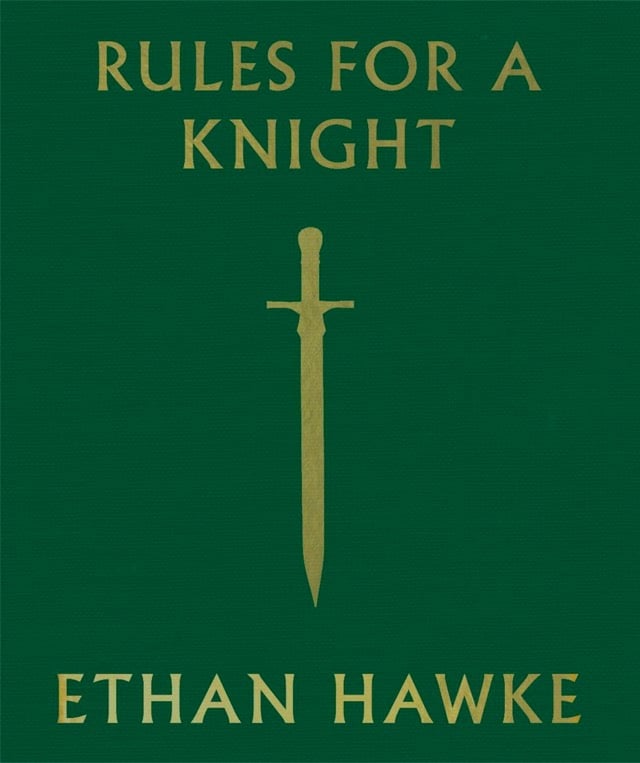This is a passage from Ethan Hawke’s Rules for a Knight, which takes the form of a fictional diary of lessons and anecdotes from a 15th century squire learning how to behave like a knight from his grandfather.
One time, on a sweltering August night, Grandfather and I made camp down by the ocean. He said, “While I teach you about the ways of war, I want you to know that the real struggle is between the two wolves that live inside each of us.”
“Two wolves?” I asked, seated on an old log near the fire. My eyes were transfixed by the flames twisting uncomfortably in the night air.
“One wolf is evil,” he continued. “It is anger, envy, greed, arrogance, self-pity, guilt, resentment, inferiority, deceit, false pride.” He paused, poking at the embers of our fire with a long stick he’d been carving.
“The other is good. It is joy, love, hope, serenity, humility, loving-kindness, forgiveness, empathy, generosity, truth, compassion, faith.”
I considered that for a minute, then tentatively asked, “Which wolf will win?”
Sparks danced towards the stars as the old man stared into the glare of the flames and replied, “Whichever one you feed.”
A helpful reminder that I’ve been feeding the wrong wolf recently. He’s so hungry and there’s been a lot of available food, but I’ve got to get back on track.
Update: As stated on the back cover, in writing this book Hawke borrowed liberally from “the ancient teachings of Eastern and Western philosophy and on the great spiritual and political writings of our time”. The story of the two wolves appears to originate from Billy Graham or perhaps from the Cherokee tribe. (thx, everyone)

Late last year, actor Ethan Hawke published a book called Rules for a Knight. The book consists of a letter from one of Hawke’s ancestors, a 15th-century Cornish knight, written to his children outlining the rules for being a good person. The letter and ancestor are fictional, but Hawke wrote the book as a guide on living a virtuous life for his own children.
A knight, fearing he may not return from battle, writes a letter to his children in an attempt to leave a record of all he knows. In a series of ruminations on solitude, humility, forgiveness, honesty, courage, grace, pride, and patience, he draws on the ancient teachings of Eastern and Western philosophy, and on the great spiritual and political writings of our time. His intent: to give his children a compass for a journey they will have to make alone, a short guide to what gives life meaning and beauty.
I missed this when it came out, but I’ve run across it twice in the past two weeks, so it appears to be one of those books — perhaps like The Life-Changing Magic of Tidying Up — that’s hanging around and resonating with people. Shane Parrish of Farnam Street wrote about the book last week and shared the book’s 20 rules for being a knight.
2. Humility. Never announce that you are a knight, simply behave as one. You are better than no one, and no one is better than you.
6. Friendship. The quality of your life will, to a large extent, be decided by with whom you elect to spend your time.
10. Grace. Grace is the ability to accept change. Be open and supple; the brittle break.
14. Discipline. In the field of battle, as in all things, you will perform as you practice. With practice, you build the road to accomplish your goals. Excellence lives in attention to detail. Give your all, all the time. Don’t save anything for the walk home. The better a knight prepares, the less willing he will be to surrender.
“Don’t save anything for the walk home.” That’s a nice little homage to Gattaca, in which Ethan Hawke’s genetically flawed character is asked by his brother how he’s been able to excel in society and Hawke answers, “I never saved anything for the swim back.”






Stay Connected